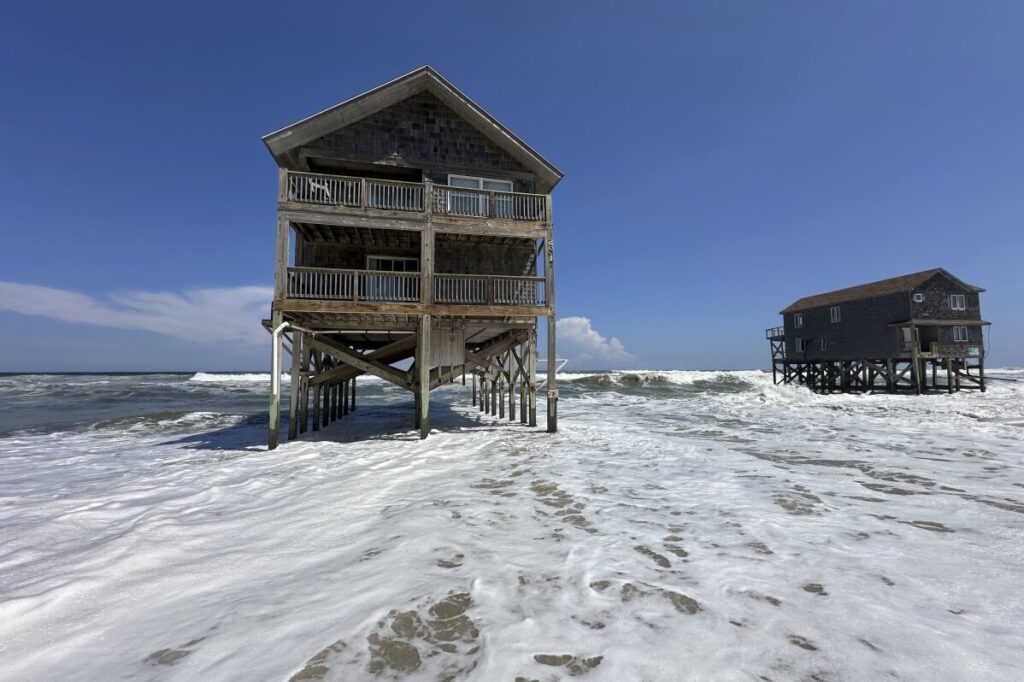Hurricane Erin Exposes Dangerous Infrastructure Failures Along East Coast
Hurricane Erin’s assault on the Outer Banks highlights alarming weaknesses in coastal infrastructure and emergency preparedness, raising urgent questions about federal priorities and national security.

As Hurricane Erin churns up the Atlantic, battering North Carolina’s Outer Banks with relentless winds and flooding, the storm’s impact reveals a troubling truth—America’s coastal defenses and infrastructure remain dangerously unprepared for these increasingly severe weather events.
Why Are Vital Highways Flooding While Washington Watches?
On Hatteras Island, surging waves have forced the closure of Highway 12—the lifeline connecting isolated barrier islands. Homes perched precariously on stilts now face rising tides that threaten their very foundations. Yet despite this clear vulnerability, federal efforts to reinforce critical infrastructure along our coasts lag behind the escalating threats. How long will taxpayers endure Washington’s inertia while local communities bear the brunt of these natural disasters?
The Outer Banks are not alone. From New York City to Maryland, authorities have shuttered beaches due to life-threatening rip currents and predicted coastal flooding. Yet even with repeated warnings, too many Americans risk their lives swimming in these dangerous conditions. This calls into question both public awareness programs and resource allocation for rescue operations—areas where America must demand better accountability from officials entrusted with safeguarding citizens.
Erin Isn’t Just Another Hurricane—it’s a Warning Signal
Erin remains a Category 2 hurricane but could regain major hurricane status with winds surpassing 111 mph before veering out to sea. Its massive tropical storm-force winds span over 500 miles—comparable to the distance between New York City and Pittsburgh—demonstrating how far-reaching such storms can be.
Experts point to a disturbing trend: warmer ocean waters fueling rapid intensification of hurricanes like Erin. Climate scientists may debate causes, but practical Americans know preparedness is paramount. Yet chronic erosion of protective dunes and aging sea walls leave beachfront communities increasingly exposed.
This storm underscores fundamental failures in protecting American sovereignty over our own coasts. Shouldn’t we prioritize real-world resilience over costly globalist climate agendas that fail to address immediate needs at home?
Longtime residents like Jacob Throne show admirable resilience born from experience, but resilience shouldn’t mean complacency. When vital supply routes risk washing away—as Rob Temple fears for Ocracoke Island—the stakes are economic as well as human.
How many more close calls does it take before Washington commits to robust investments in infrastructure capable of defending our shores? Our national security depends as much on strong borders inland as on secure coastlines facing unpredictable natural forces.
